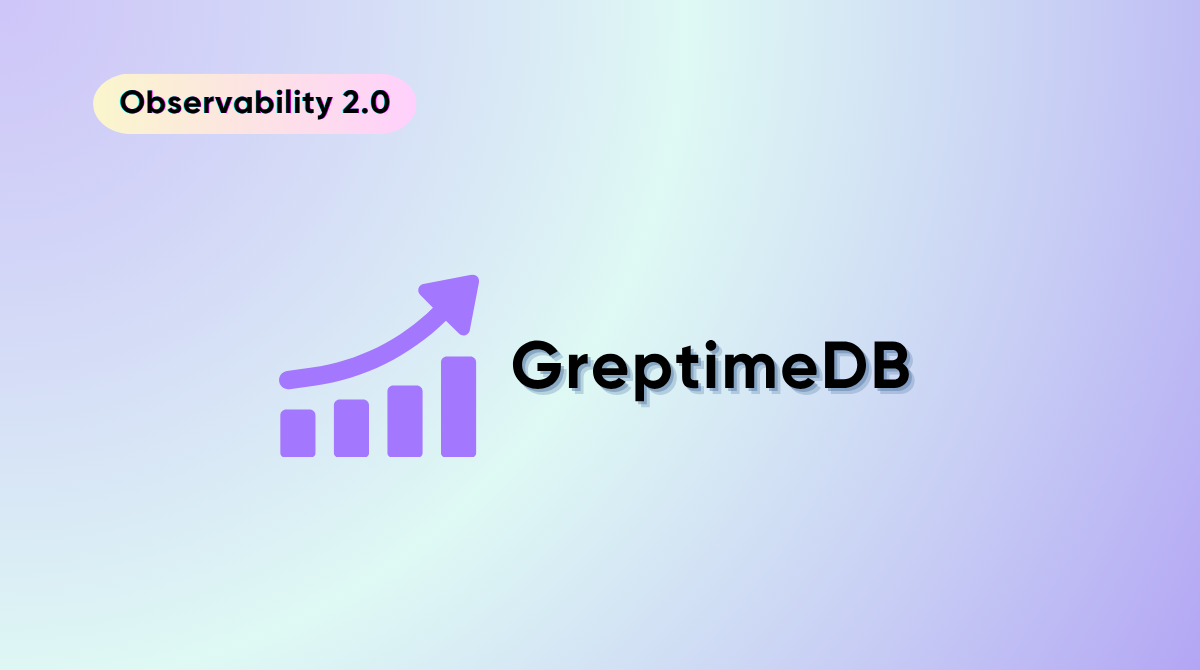
When selecting an observability database, performance isn't just about speed—it's about finding the optimal balance of ingestion rate, query efficiency, resource consumption, and cost. Recent benchmarks comparing GreptimeDB with industry standards like ClickHouse and Elasticsearch reveal some surprising insights about where each solution excels.
The Benchmark: Real-World Log Processing
To ensure a fair comparison, we tested all three systems using identical hardware and datasets:
- 1 billion Nginx access log records (approximately 10GB raw data)
- Both structured (parsed fields) and unstructured (raw text) ingestion
- Consistent query patterns spanning counting, filtering, and time-range lookups
- Default configurations for all databases
Let's dive into how each solution performed across multiple dimensions.
Ingestion Performance: Speed Matters
Data ingestion speed directly impacts how much telemetry you can collect:
Structured Log Ingestion (rows/second)
- ClickHouse: 200,000
- GreptimeDB: 120,000-130,000
- Elasticsearch: 40,000
GreptimeDB delivered consistent performance in both local disk and S3 object storage modes—a unique advantage for cloud-native deployments. Meanwhile, Elasticsearch lagged significantly, processing less than a third of GreptimeDB's volume.
Resource Efficiency: Doing More with Less
Modern observability requires efficiency at scale:
CPU Usage (at 20k rows/second)
- ClickHouse: 20% (lowest)
- GreptimeDB: 60%
- Elasticsearch: 120% (highest)
Memory Usage
- GreptimeDB: 375MB (lowest)
- ClickHouse: 564MB
- Elasticsearch: 12GB (32x more than GreptimeDB!)
The results are striking: GreptimeDB maintained minimal memory consumption while delivering strong performance. Elasticsearch's resource hunger makes it challenging to scale economically for large log volumes.
Storage Efficiency: The Compression Battle
Storage costs often dominate observability budgets:
Compression Ratio (% of original 10GB data size)
- GreptimeDB: 13% (best)
- ClickHouse: 19%
- Elasticsearch: 140% (worse than uncompressed)
GreptimeDB's industry-leading compression means storing the same data for a fraction of the cost—a critical advantage as data volumes grow.
Query Performance: Finding the Balance
In structured log querying, all three systems performed comparably for most operations. For unstructured text search:
- Elasticsearch: Fastest overall query performance
- ClickHouse: Balanced performance across query types
- GreptimeDB: With optimized settings, all queries completed within 1.6 seconds
Elasticsearch's query speed comes at the cost of enormous resource consumption, while GreptimeDB delivers solid performance with minimal resource requirements.
The Cloud-Native Advantage
Perhaps most impressive was GreptimeDB's consistent performance with S3 object storage—a capability neither ClickHouse nor Elasticsearch could match. This cloud-native architecture enables:
- Separation of compute and storage for better scaling
- Dramatically lower storage costs (3-5x cheaper than block storage)
- Simplified operations without performance compromise
Choosing the Right Tool
These benchmarks highlight how each database aligns with different priorities:
- GreptimeDB: Best for cost-effective, large-scale observability with balanced performance
- ClickHouse: Solid choice for analytics-heavy workloads where ingestion speed is critical
- Elasticsearch: Suitable for search-intensive applications where query speed trumps resource efficiency
For most observability workloads at scale, GreptimeDB offers the most balanced approach—delivering strong performance across all dimensions without breaking the bank on infrastructure costs.
Ready to see how GreptimeDB performs with your workloads? Try GreptimeCloud for free and run your own benchmarks.
About Greptime
GreptimeDB is an open-source, cloud-native database purpose-built for real-time observability. Built in Rust and optimized for cloud-native environments, it provides unified storage and processing for metrics, logs, and traces—delivering sub-second insights from edge to cloud —at any scale.
GreptimeDB OSS – The open-sourced database for small to medium-scale observability and IoT use cases, ideal for personal projects or dev/test environments.
GreptimeDB Enterprise – A robust observability database with enhanced security, high availability, and enterprise-grade support.
GreptimeCloud – A fully managed, serverless DBaaS with elastic scaling and zero operational overhead. Built for teams that need speed, flexibility, and ease of use out of the box.
🚀 We’re open to contributors—get started with issues labeled good first issue and connect with our community.
